
iGaming regulation and KYC in Latin America
Latin America is fast becoming a big play for iGaming operators placing bets on new global markets. In our market-by-market report on iGaming in Latin America, 70% of iGaming operators we spoke to reported plans to expand into regulated online gaming markets in Central and South America over the next three years.
iGaming LATAM opportunities
The iGaming market in Latin America is as diverse as it is dynamic and has been regulating and growing in recent years. One of the big drivers is the growing availability and affordability of high-speed internet and smartphones, increasing online participation across Central and South America.
There are also ongoing, positive shifts in the regulatory environment. With over 34 countries and union territories, Latin America represents a complex map of jurisdictions. As regulations continue to evolve and markets open up, however, iGaming operators that play by the KYC (know your customer) rules, offering safe and engaging experiences look set to win.
iGaming KYC Argentina
Regulation and licencing
In Argentina, gambling regulation is under the authority of the country’s 23 independent provinces and the autonomous city of Buenos Aires. Several provinces and Buenos Aires have legalised online gambling. The Congreso de la Nación Argentina, however, retains the right to ensure that the AML (anti-money laundering) regulations are followed by operators in all provinces.
Know your player in Argentina with identity verification data match rates of up to 95%*
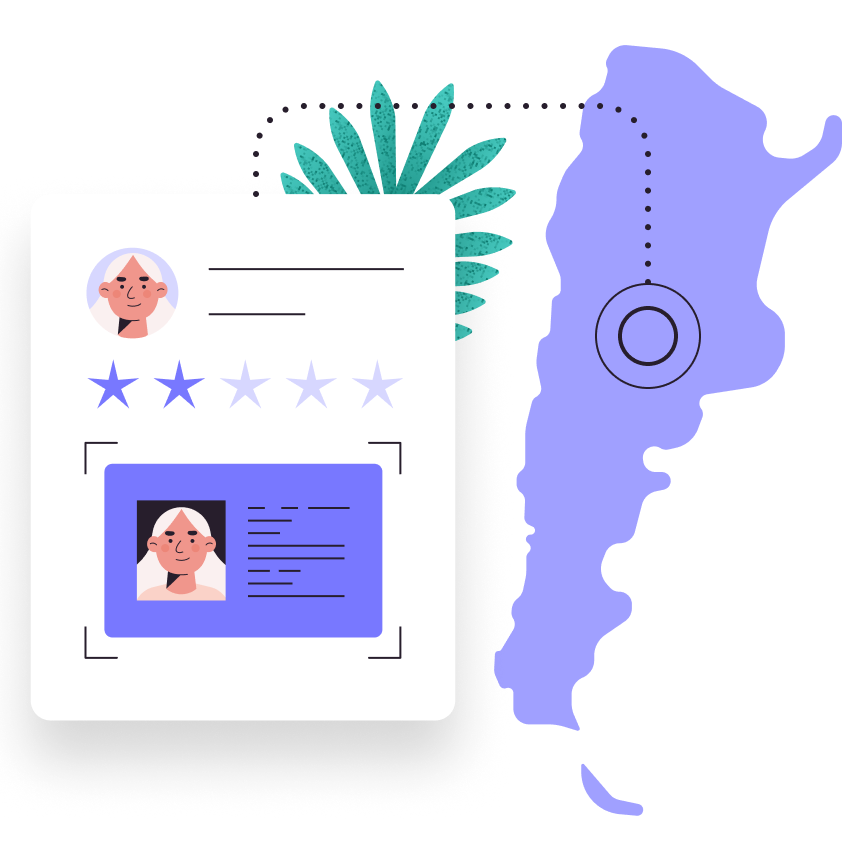
The regulatory landscape and licensing process for iGaming varies from province to province. All operators must screen players to prevent AML violations and (in some jurisdictions) ensure that gaming transactions are conducted through state-owned banks.
iGaming KYC Brazil
Regulation and licencing
With a population of over 200 million and fanatical sports following, Brazil’s sports betting market is expected to grow rapidly following regulation. A successful and sustainable industry will depend on Brazil establishing a robust regulatory framework that balances the right licencing requirements, consumer protections and taxation.
Know your player in Brazil with identity verification data match rates of up to 95%*
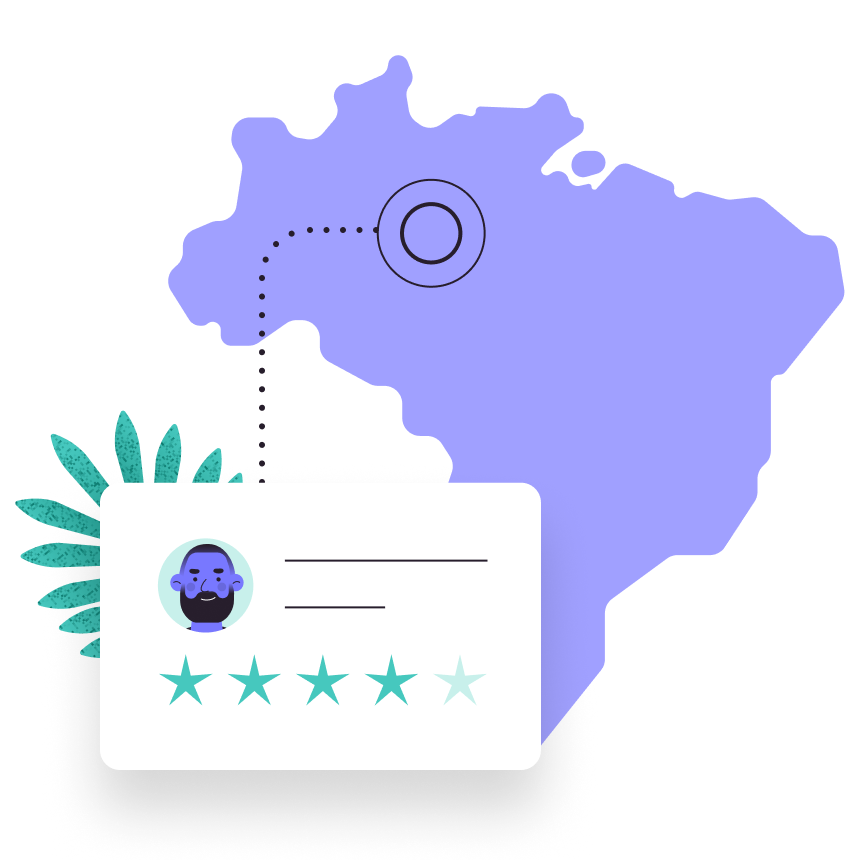
Now that gambling legislation has been passed in Brazil, the market is anticipating publication of gaming regulations by the Ministry of Finance’s during 2024. Watch this space – Brazil could become a major player in the global sports betting industry.
Brazil has a history of high taxes, and if sports betting is subject to similarly high rates of taxation, it could discourage investment in the market and limit its growth potential. If the government of President Lula da Silva gets this balance right, however, Brazil could become a major player in the global sports betting industry.
Player identity verification across Latin America
We offer an integrated global portfolio of player identity checks and KYC solutions for iGaming operators in Latin America. With a single integration, operators can access trusted KYC data and market-leading match rates in Argentina, Brazil and Mexico. Data coverage now includes Chile, Colombia and Peru, with Ecuador, Paraguay, Uruguay and Venezuela coming soon.
Our global library of 8,000 identity documents and robust software development kits deliver extended due diligence, powerful identity proofing and biometric authentication for comprehensive AML across Latin America.
Get more players onboard with KYC checks across Latin American markets

iGaming KYC Peru
Regulation and licencing
Peru has also joined the race to regulate online gaming markets across Latin America, approving new regulations and advancing its own iGaming sector. Peru's initiative to regulate sports betting and iGaming is directed by the Ministry of Foreign Trade and Tourism (MINCETUR), indicating a national commitment to creating a safe digital gaming environment. 89% of the operators we surveyed for our report on iGaming in Latin America indicated plans to expand into Peru over the next five years.
Prove player identity and protect your business in Peru
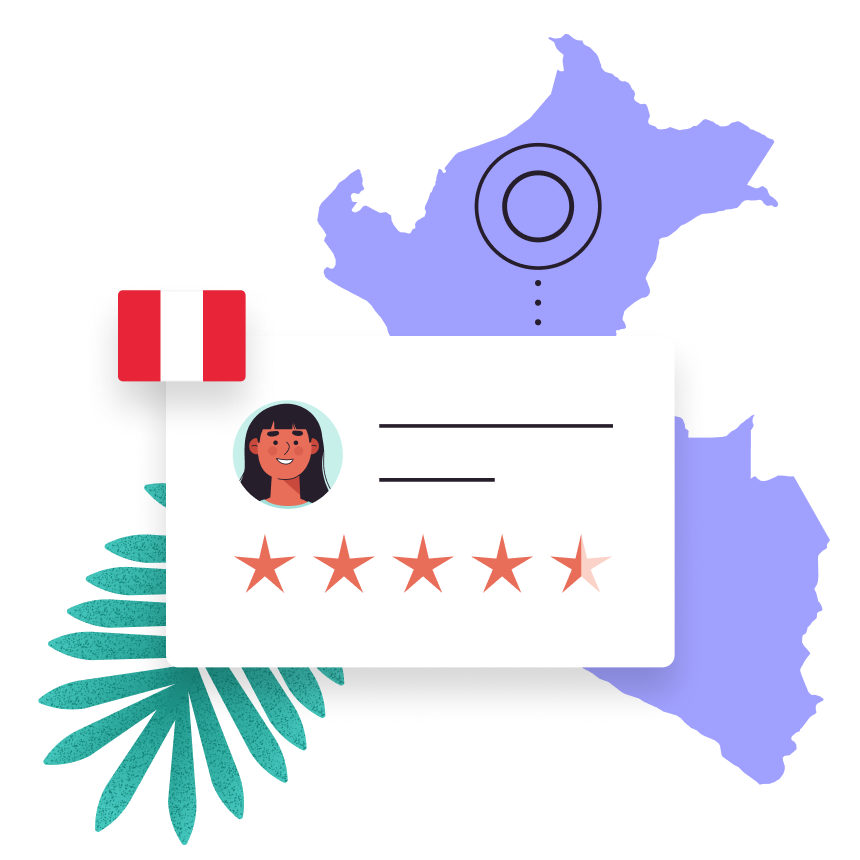
Peru's move to join the ranks of regulated iGaming markets in the Latin America region includes comprehensive KYC requirements and AML standards, aiming to safeguard both operators and players.
iGaming KYC Chile
Regulation and licencing
The future of regulated cloud-based iGaming in Chile is currently unclear. Although once stalled legislation is now progressing through Congress, the incumbent, land-based gaming industry has brought lawsuits against partners of grey market operators, including the country’s powerful professional football teams.
Get more players onboard in Chile with data and document identity verification
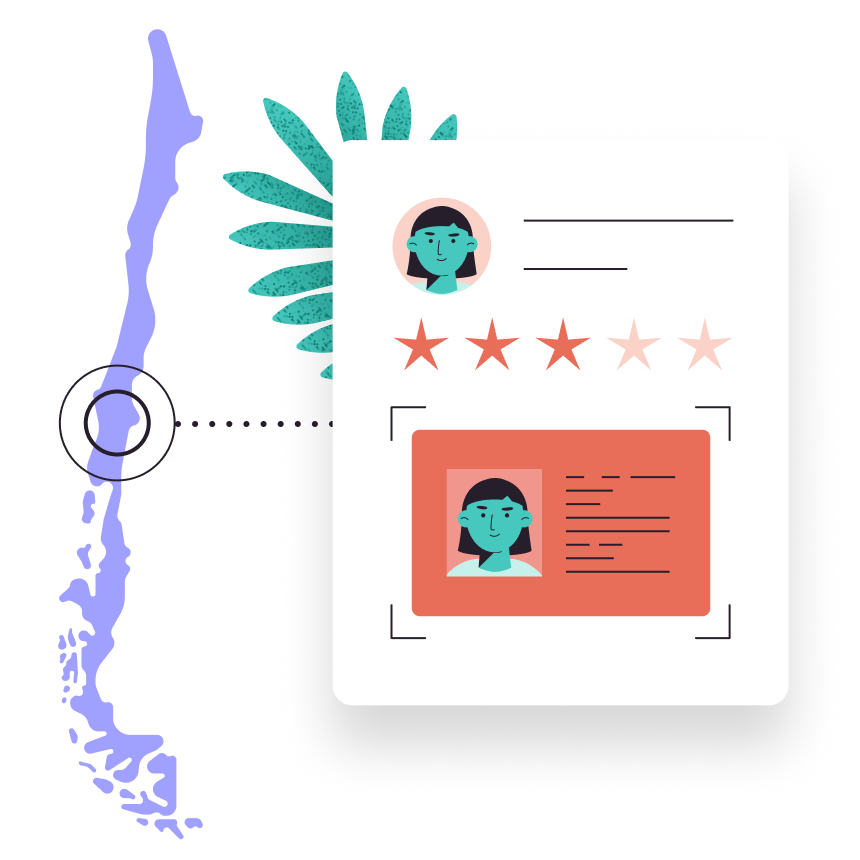
If regulation does go ahead in Chile, the platforms will be governed by Chile’s Superintendencia de Casinos de Juego (SCJ) and operators will be required to maintain mandated security standards to guarantee the safety of the money at stake.
iGaming KYC Colombia
Regulation and licencing
Colombia was the first Latin American country to regulate the operation of online gambling, adopting regulations and technical standards in 2016. All forms of iGaming are well-regulated in Colombia, including, casinos, bingo, poker and sports betting.
Know your players across Colombia with data and document KYC checks
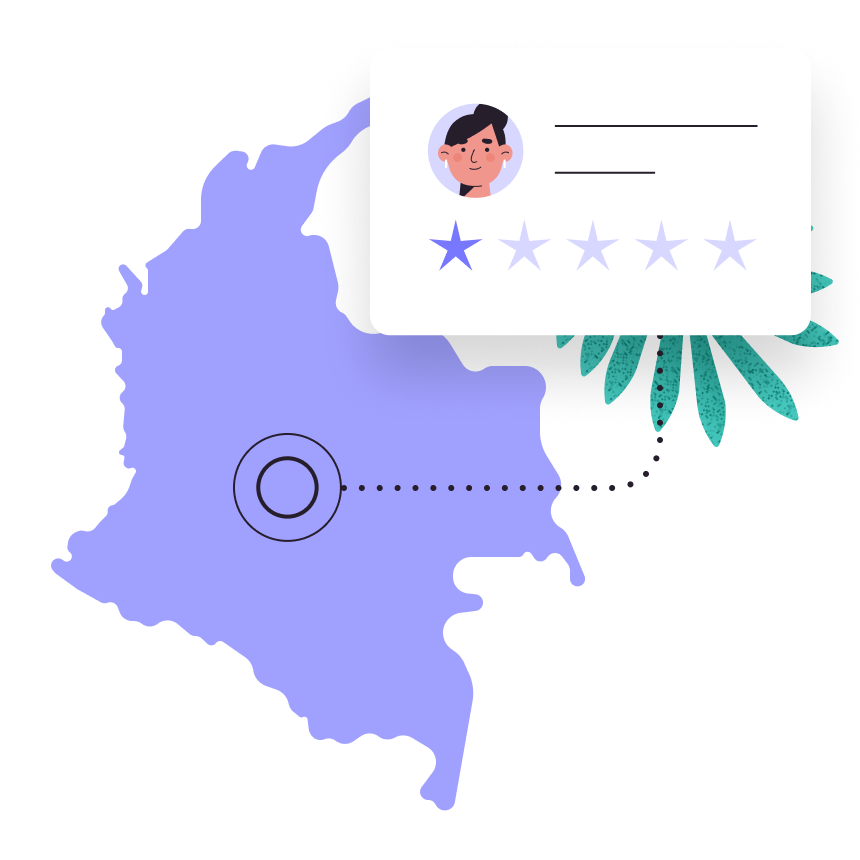
Colombia's national regulator, Coljuegos has created a strong and effective regulatory framework, ensuring operators meet high standards for responsible gambling, including age verification and affordability. Starting from its sophisticated online platform, Coljuegos allows operators to apply for licenses and submit reports digitally, making the process of regulating the iGaming industry more efficient and effective. This has led to reliable data and regular reports on the performance of the industry, including revenue figures and the number of active players which has helped to build trust and confidence in the sector.
Promoting player safety
We are a leading supplier of affordability screening solutions designed to identify and protect vulnerable players. Our regulatory team proactively supports iGaming operators to streamline financial risk checks, improve player protection and be ready to comply with national regulations and social responsibility guidance.
As Latin American regulators introduce financial affordability checks in line with established iGaming markets, our team, data and solutions are ready to ensure that operators get player protection right.
Protecting players from gambling beyond their means

iGaming KYC Mexico
Regulation and licencing
Mexico is at the top of the list of most popular markets for iGaming operators. 95% of the companies we surveyed are looking to expand into Mexico over the next five years. With a population of over 120 million people and a mobile penetration rate estimated at around 60%, Mexico is the largest iGaming market in Latin America.
Our trusted identity data sources cover 90% of the Mexican population
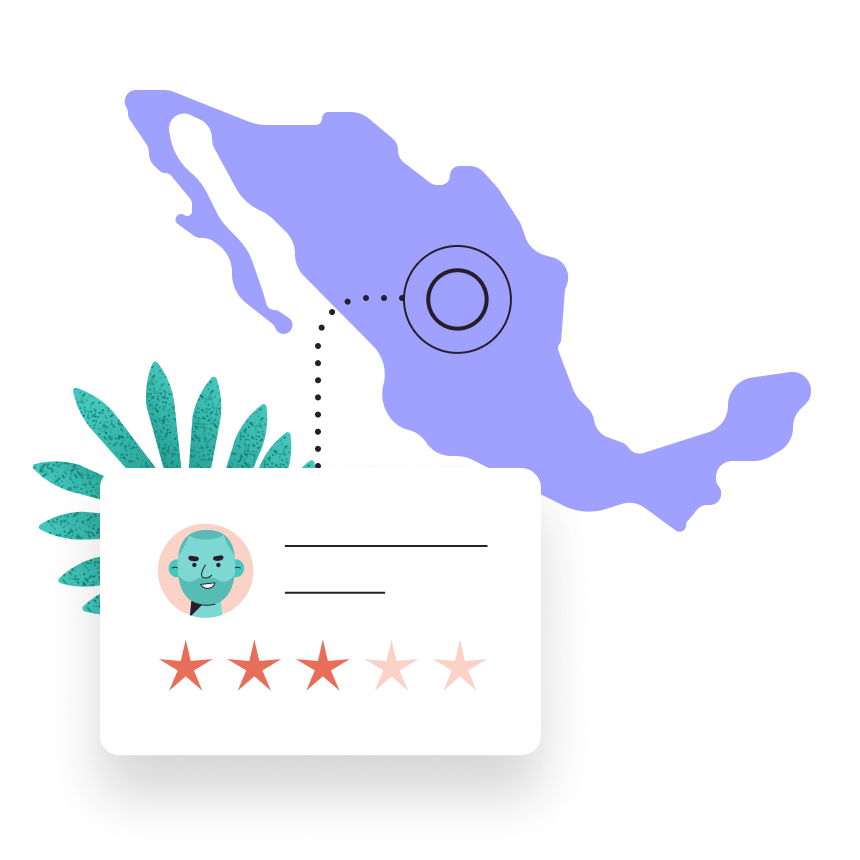
Almost all land-based forms of gambling are regulated in Mexico, but currently, online gaming operates in a thriving grey market. Online casino and sports betting operators don’t require digital licenses but instead operate in partnership with a land-based license holder. If Mexico’s regulatory authority, the Dirección General de Juegos y Sorteos were to issue iGaming licenses, it could be a win for all concerned.
iGaming KYC compliance in Latin America.
The requirement for financial transfers and the risk of fraud means that there are many regulatory requirements affecting iGaming. Eighty-six per cent of the operators we surveyed in our market-by-market report on iGaming in Latin America highlighted local compliance as a key challenge and were aware that as international businesses they are likely to incur additional scrutiny in Latin American markets.
Newly regulated markets attract both wanted and unwanted attention, from customers and criminals. As iGaming markets open up, it’s likely that national regulators will implement more stringent rules on KYC and identity verification in order to protect customers and prevent fraud. iGaming operators will need to adapt to these regulations and implement more sophisticated measures to ensure compliance and maintain customer trust.
Beating bonus abuse
Bonus abuse involves signing up to an iGaming service multiple times, cheating the system of free spins and bonus payments aimed at new players. And it’s booming – costing the online gaming sector around 15% of its annual revenue.
The battle to beat bonus abuse begins at player onboarding. Email intelligence silently checks the transactional and behavioural history of an email address at sign-up to deliver a fraud risk score.
Learn how to beat bonus abuse cheats before onboarding

Know your player in Latin America
Here at GBG, we offer international iGaming operators a single integration to trusted national data sources in Argentina, Brazil, Chile, Colombia, Mexico and Peru with Ecuador, Paraguay, Uruguay and Venezuela data coverage coming soon.
Our LATAM data suppliers are sourced to meet the highest compliance standards. With more identity data sets to reference, we can deliver LATAM market-leading KYC match rates and fast and accurate player onboarding decisions. Combined with the highly configurable ID3global identity verification rules engine, this delivers a winning KYC LATAM solution for player onboarding.
Best practice player onboarding dynamically adjusts between data and document-centric identity verification routes, to maximise customer conversion while reducing the risk of fraud. A combination of identity data, email intelligence and identity document checks offers extended due diligence and the breadth and depth of player insight needed to beat bonus abuse and build a comprehensive AML LATAM solution.
Together, these approaches to KYC can help operators comply with iGaming regulations across Latin America while providing a smooth and secure experience for players.
Download our latest report on iGaming in Latin America.
*Maximum match rates for adult populations will vary with player input and platform configuration.
Frequently Asked Questions
What is Know Your Customer?
Know your customer (KYC) is a requirement for regulated industries, including Gaming. It refers to the customer due diligence companies must carry out at onboarding and as part of continuous monitoring to ensure customers are genuine and do not pose an individual risk to the business.
What KYC checks are available in Latin America?
At GBG, our trust-building solutions and team support the global iGaming industry in onboarding players and delivering better and safer experiences. We offer an international portfolio of global and in-country identity verification. Our KYC checks include identity data, documents, biometrics, fraud protection and PEPs and sanctions screening and transaction monitoring for complete compliance.
Should I use data or document identity verification?
An identity is made up of several different elements: identity data, such as name, date of birth and address, and identity documents, such as a driving licence or passport. Which you use for KYC will depend partly on regulatory requirements and partly on your business’ own appetite for risk.
How can I prevent bonus abuse?
The battle to beat bonus abuse begins at player onboarding. Adding Email Intelligence to your KYC and AML checks at sign-up silently checks the transactional and behavioural history of an email address. This delivers a fraud risk score that identifies synthetic email addresses and helps to stop bonus cheats.
Placing big bets on Latin America?
Read our market-by-market report on opportunities and player onboarding.


